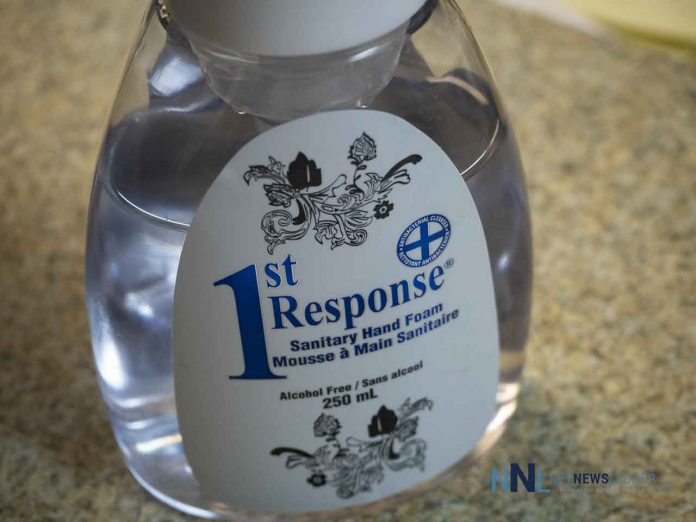In response to the coronavirus epidemic, experts have repeatedly urged people to wash their hands frequently. The Centers for Disease Control and Prevention (CDC) recommends frequent hand-washing for a minimum of 20 seconds with soap and water. Dermatologists report that patients appear to be following this advice, which should be good news. But these medical professionals are seeing an increase in the number of appointments for the treatment of itchy, inflamed hands. The liver is the second-largest organ in the human body, but the skin is the largest — and it needs to be cared for.
Joshua Zeichner, director of cosmetic and clinical research in dermatology at Mount Sinai Hospital in New York City, told Allure that more people are seeing him for rashes on their hands caused by frequent washing. Because soap and warm water strip oil from the skin, eczema and dermatitis cases are increasing. Approximately one out of 10 children will experience eczema, but adults can also develop the condition. Dr. Zeichner states that these rashes must be addressed not only because they’re uncomfortable, but also because they put the skin at risk for infections.
Even when there’s no pandemic to worry about, dermatologists see more cases of irritated hands in the winter. Shari Marchbein, a dermatologist and clinical assistant professor of dermatology at NYU School of Medicine, told Allure that people typically wash their hands more often in the winter to keep from getting a cold or the flu. But with the current concerns about coronavirus, there is not only more hand-washing but heavy use of hand sanitizers that contain alcohol. All the washing and sanitizing deplete the skin of sebum, or the oil and fats skin needs to stay healthy. The dehydration can then lead to eczema.
If you already have very dry skin due to excessive washing, inadequate moisturizing, or a genetic predisposition, you are at risk for eczema, says Dr. Marchbein. Sebum retains moisture and prevents irritants and bacteria from entering the body through the skin. When sebum is depleted, the skin becomes red, itchy, flaky, and cracked, which can lead to infection.
Even people without preexisting skin conditions can still experience dry, cracked hands due to extra hand-washing and use of hand sanitizers. Dr. Zainab Laftah, consultant dermatologist and spokesperson for the British Skin Foundation, told Medical News Today that frequent washing and sanitizing removes proteins from the top layer of the skin, which weakens the skin barrier and opens patients up to skin infections. He also stated that soap can cause dermatitis (or flaking, dry, itchy, and reddened skin), especially in the webbing between fingers and on the knuckles. Dr. Laftah recommends applying a moisturizer to prevent these symptoms.
According to Joel Schlessinger, MD, a dermatologic surgeon in Omaha, Nebraska, patients with skin conditions such as eczema are having an especially difficult time with the effects of frequent hand-washing and use of hand sanitizers. Patients with eczema experience more intensive symptoms, such as very itchy or inflamed skin. Even the mildest brands of hand soaps deplete moisture — and people with eczema already struggle with dry skin. Parents of young children are particularly vulnerable to eczema flare-ups since they have to wash their hands after changing diapers, in addition to extra hand-washing as a way of slowing the spread of the novel coronavirus. The CDC advises taking off old bandages and looking for symptoms of infection every 24 hours. If you have a bandage on your hand, you may find hand-washing difficult, but eczema can also make washing more of a challenge.
For patients with eczema or those who are experiencing dry skin, Dr. Zeichner recommends using a petrolatum-based moisturizer regularly during the day. This type of moisturizer creates a seal that protects the skin but still allows in air. He specifically recommends Vaseline Intensive Care Advanced Repair Lotion since it spreads easily and isn’t greasy. Dr. Marchbein likes La Roche-Posay Lipikar Eczema Cream, which contains niacinamide and oatmeal to soothe the skin, as well as Vanicream, which is hypoallergenic and provides moisture to dry hands. If your rash doesn’t go away on its own, you should contact a dermatologist. Many professionals now offer telemedicine options, which could allow you to have your issue properly diagnosed via photo or webcam.
The British Association of Dermatologists provided advice to Medical News Today about protecting the skin of the hands. While they don’t want to discourage hand-washing due to coronavirus concerns, they do have recommendations to help people lessen the effects of hand-washing on skin that’s already damaged by eczema and other skin conditions. They stress the importance of using moisturizers after washing the hands and state that some patients might want to apply a moisturizer and then put on cotton gloves to wear overnight. Rubber or latex gloves can help protect the skin of the hands while washing dishes or cleaning with potentially harsh agents.
Doctors may treat certain skin conditions with immunosuppressants, such as ciclosporin and methotrexate. Some patients worry about taking these drugs in the midst of the coronavirus pandemic and have asked doctors if they should discontinue these medications. The British Association of Dermatologists stresses that creams used as prescribed by doctors to treat skin problems are unlikely to place patients at greater risk for contracting COVID-19 or cause them to experience complications if they do get the illness. They state that most patients are currently continuing with immunosuppressants in the absence of evidence that they should stop using these treatments. For patients who are considering stopping treatment, they should be aware that their eczema or other skin condition could worsen as a result. They should also know that getting access to medical treatment may become more difficult as doctors contend with the growing number of COVID-19 cases.
Between the heightened stress of the coronavirus pandemic and the need for frequent hand-washing and sanitizing, it’s hardly surprising that eczema and other skin conditions are on the rise. Consult your dermatologist if your eczema worsens despite your best efforts to care for it at home.







